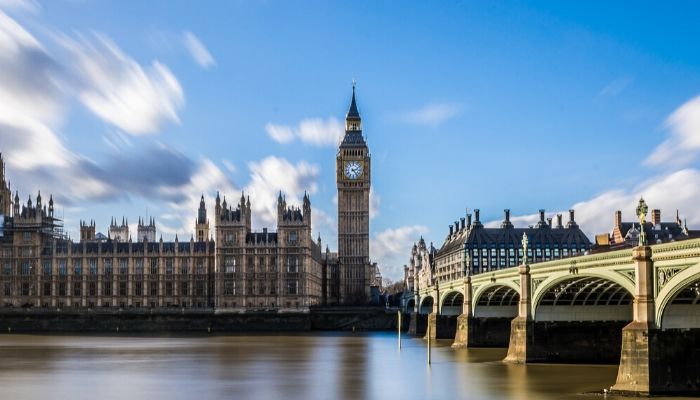
As the UK Government returned to business today following a halt to all activity following the death of Queen Elizabeth II and a 10 day mourning period, this week promises to be a testing one for new Prime Minister, Liz Truss and her team.
With new policy plans to help support businesses with their rising energy costs expected tomorrow (Wednesday), a decision on interest rates on Thursday by the Bank of England, followed by the new chancellor’s ‘mini-budget’ statement on Friday – the new government have a busy week ahead of them.
But for those hoping to see some changes to the off-payroll reforms being announced, recent media reports would suggest that many are not holding out much hope for any changes in this area.
Budget Impact for Contractors
With the latest IR35 rules having been in place for over a year now, and are being actively enforced by HMRC, industry sources would seem to agree that no changes are anticipated in Friday’s budget statement by newly appointed Chancellor, Kwasi Kwarteng. With few citing that it is unlikely that any IR35 review will be expected.
What we can expect before Friday?
Ahead of Friday’s statement, the new Business Secretary, Jacob Rees-Mogg is due to announce plans of the new government’s policies that aim to support businesses encountering eye watering energy costs. A number of different measures are believed to be under consideration by the government with many feeling that a simple discount approach would offer the most effective method to use. Other sources report that businesses could be given a fixed reduction to the rate they currently pay per kilowatt hour on their bills.
Thursday will also see the delayed meeting of the Bank of England Monetary Policy Committee (MPC) take place to agree a decision on interest rates.
The pound slumped to its weakest level against the dollar since 1985 last week, this event coincided with the 30 year anniversary of ‘Black Wednesday’, which saw the UK forced out of the Exchange Rate Mechanism on the back of the pound’s collapse. Amidst the need to prop up the value of the falling pound, coupled with anticipated rising inflation as a result of emergency fiscal spending, the Bank of England is facing increased pressure to take significant action this week to raise interest rates.
Fiscal Event Friday
Speculation is always rife ahead of any budgetary statements regarding what measures may or may not be included, and this week’s emergency mini-budget, or ‘fiscal event’ as it is becoming known is no different.
Many media sources are calling for the chancellor to be ‘bold’ in his measures as the government seek to address roaring inflation, boost an economy that is tipping into recession and address a cost of living crisis that hasn’t been seen in the UK for decades.
Tax cuts worth an estimated £30billion and spending upwards of £100billion to fund an emergency energy price cap freeze, are just some of the initial headlines being reported.
The UK’s new Prime Minister, Liz Truss, has already ruled out plans to introduce a windfall tax on oil and gas giants to help fund her energy cap freeze proposed plans, with many hoping that Friday will offer some clarity on just how the new policies will be funded.
Friday’s statement will not be classed as an ‘official budget’, meaning there is no requirement for the Office for Budget Responsibility (OBR) to produce forecasts to outline the impact on public spending and borrowing. This will no doubt cause concern for many since the new PM is thought to be borrowing up to an estimated £150billion to fund her plans, which would see the average domestic energy bill capped at £2,500 a year for two years.
What else can we expect?
Reports suggest that cuts to Income Tax by 1% could be introduced later this week as well as a reversal on the highly unpopular rise to National Insurance (NI) introduced by former Chancellor, Rishi Sunak earlier this year.
In April, the NI rate was increased by 1.25%, resulting those on the lower rate changed from 12% TO 13.24% and from 2% to 3.25% for those on the higher earners threshold.
Corporation Tax is currently planned to increase in April 2023 from 19% to 25%, making the UK one of the highest rates in Europe for businesses. Figures reported suggest that cancelling such a tax rise could cost the Treasury around £17billion per year by 2026, though others argue it could also create highly favourable conditions to boost foreign investment in UK companies and help balance the books of UK companies. Recent media reports ahead of Friday suggest that the PM will not rise Corporation Tax.
Value Added Tax (VAT) is believed to also be under consideration with suggestions that cuts may fall as low as 15% in a move that would be viewed highly favourable among consumers, helping them to offset some of the recent inflationary increases.
Summary
With multiple problems for the new government to resolve, many feel it is an unenviable job that the new chancellor finds himself in. Considering the pros and cons of each measure need to be carefully weighed up to contemplate not just the immediate impact, but also of the longer term implications, for consumers, businesses and the wider economy if they are to successfully lift the UK’s economy out of its current situation.
If you’re starting a new contract, ContractingWISE has access to a wide range of hassle-free services that can help you with setting up a limited company or finding the right umbrella company for you. To talk to a member of our team, call: 0203 642 8679



